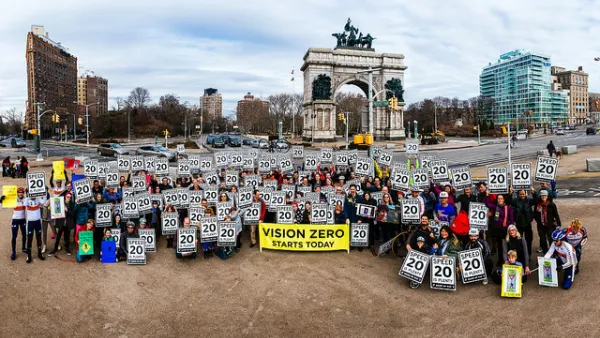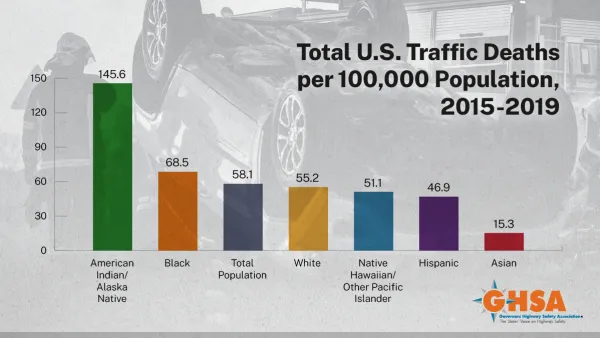The reckless and dangerous driving that has been a hallmark of the Covid-19 pandemic could become a more common, permanent feature of life in the United States.

Emily Baumgaertner and Russ Mitchell write for the Los Angeles Times about new traffic safety data that solidifies a dangerous trend that began during the pandemic.
"The latest evidence suggests that after decades of safety gains, the pandemic has made U.S. drivers more reckless — more likely to speed, drink or use drugs and leave their seatbelts unbuckled," according to the article.
The most recent data driving the conclusions expressed in the article were published in October by the National Highway Traffic Safety Administration. The report details traffic fatalities for the first half of 2021, when an estimated 20,160 people died in motor vehicle crashes—an 18 percent increase from 2020. (The carnage on U.S. roads during 2020 should not be underestimated based on this comparison, however.)
The article cites Ken Kolosh, a researcher at the nonprofit National Safety Council, to make the case that the trend of reckless, dangerous driving is likely to persist beyond the pandemic.
“I fear we’ve adopted some really unsafe driving habits, and they’re going to persist,” Kolosh said. “Our roads are less safe than they were pre-pandemic.”
According to the article, the reckless driving apparent in traffic safety statistics is mirrored in other reckless behavior during the pandemic: "Alcohol sales have soared, drug overdoses have set new records, and homicides have seen their biggest increase on record."
Frank Farley, a professor of psychology at Temple University in Philadelphia, is also cited in the article saying the pandemic has ushered in a "sea change in psychology." In the world after Covid-19, according to Farley, reckless driving is an arousal of "arousal breakout"—or a rebellious reaction to the restrictions of pandemic life.
FULL STORY: Car crash deaths have surged during COVID-19 pandemic. Here’s why

Analysis: Cybertruck Fatality Rate Far Exceeds That of Ford Pinto
The Tesla Cybertruck was recalled seven times last year.

National Parks Layoffs Will Cause Communities to Lose Billions
Thousands of essential park workers were laid off this week, just before the busy spring break season.

Retro-silient?: America’s First “Eco-burb,” The Woodlands Turns 50
A master-planned community north of Houston offers lessons on green infrastructure and resilient design, but falls short of its founder’s lofty affordability and walkability goals.

Test News Post 1
This is a summary

Analysis: Cybertruck Fatality Rate Far Exceeds That of Ford Pinto
The Tesla Cybertruck was recalled seven times last year.

Test News Headline 46
Test for the image on the front page.
Urban Design for Planners 1: Software Tools
This six-course series explores essential urban design concepts using open source software and equips planners with the tools they need to participate fully in the urban design process.
Planning for Universal Design
Learn the tools for implementing Universal Design in planning regulations.
EMC Planning Group, Inc.
Planetizen
Planetizen
Mpact (formerly Rail~Volution)
Great Falls Development Authority, Inc.
HUDs Office of Policy Development and Research
NYU Wagner Graduate School of Public Service




























